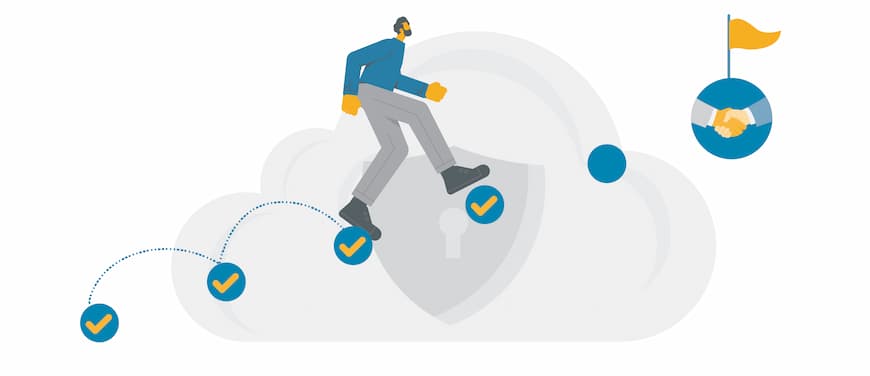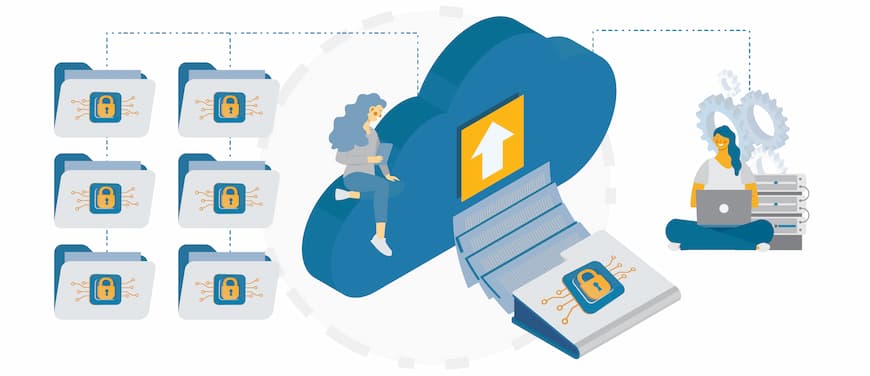In today's fast-paced business landscape, mergers, acquisitions, and other significant financial transactions are becoming increasingly common. Such endeavors, while promising opportunities for growth and development, are accompanied by a crucial phase known as due diligence. This phase involves the thorough examination of a target company's financial, legal, operational, and strategic aspects to ensure that both parties have a comprehensive understanding of the risks and opportunities associated with the deal. To facilitate this intricate process, technology has introduced a game-changing solution: virtual data rooms (VDRs).

The Evolution of Due Diligence
Traditionally, the due diligence process involved stacks of paper documents, lengthy meetings, and time-consuming correspondence between parties. This method was not only inefficient but also posed significant security risks and logistical challenges. The introduction of virtual data rooms marked a paradigm shift in how due diligence is conducted, offering a secure, efficient, and streamlined approach to managing and sharing sensitive information.
Defining Virtual Data Rooms
A virtual data room is a secure cloud-based repository that allows businesses to organize, manage, and share documents, files, and other confidential information with authorized parties during due diligence processes. VDRs are equipped with various features designed to enhance security, accessibility, and collaboration while mitigating the risks associated with physical document sharing.
How VDRs Streamline the Due Diligence Process

Enhanced Security
One of the primary concerns during due diligence is maintaining the security of sensitive information. VDRs employ advanced encryption, access controls, and other security measures to ensure that only authorized individuals can access the documents. This significantly reduces the risk of data breaches and leaks that can derail a transaction.
Efficient Organization
VDRs provide a centralized platform where all relevant documents can be uploaded, categorized, and organized according to the specific needs of the due diligence process. This eliminates the need for participants to sift through physical documents, making information retrieval quick and convenient. VDRs often have advanced search capabilities, enabling users to find documents quickly.
Global Accessibility
In today's global business landscape, deals often involve parties located in different parts of the world. VDRs enable secure access to documents from anywhere with an internet connection, facilitating collaboration among stakeholders regardless of geographical constraints and expediting the due diligence process.

Real-time Updates
Documents in a VDR can be updated in real-time, ensuring that all parties have access to the latest information. This feature eliminates confusion and helps maintain accurate records throughout the due diligence process.
Reduced Time and Costs
With physical due diligence, arranging meetings, mailing documents, and waiting for responses can consume a significant amount of time and money. VDRs eliminate these logistical challenges, resulting in faster due diligence processes and reduced costs associated with travel and paper materials.
Controlled Access
VDRs offer granular control over who can access specific documents and what actions they can perform, such as viewing, downloading, or printing. This level of control ensures that confidential information remains in the right hands.
Document Tracking and Auditing
VDRs provide an audit trail that tracks who accessed which documents and when. This transparency can be invaluable in demonstrating compliance and accountability, especially in industries with strict regulatory requirements.
Collaboration and Communication
VDRs allow participants to communicate and collaborate within the platform, reducing the need for less secure external communication channels. This feature streamlines discussions, negotiations, and decision-making.
Best Practices for Organizing a Virtual Data Room
Organizing a virtual data room (VDR) effectively is crucial for streamlining information sharing, maintaining security, and facilitating due diligence processes. To ensure best practices, start by categorizing and labeling documents with a clear and intuitive structure. Employ a hierarchical folder system, where main categories are subdivided into relevant subfolders. Consistency in naming conventions and file formats enhances accessibility.
A well-designed index or table of contents can provide an overview of the data room's contents, aiding quick navigation. Clearly outlining usage guidelines and instructions for participants can minimize confusion and improve collaboration. Regular maintenance, including the removal of obsolete documents, guarantees the data room remains up to date and clutter-free.
Ultimately, a thoughtfully organized virtual data room expedites transactions, safeguards sensitive information, and fosters efficient communication among stakeholders.

Real-Time Collaboration Among Multiple Parties
Virtual data rooms play a pivotal role in fostering real-time collaboration among multiple parties by providing a secure and streamlined environment for the exchange and management of sensitive information. These digital platforms enable authorized participants, regardless of their geographical locations, to access, share, and collaborate on crucial documents simultaneously.
Through features like document version control, live commenting, and real-time notifications, virtual data rooms ensure that all stakeholders can contribute, review, and make informed decisions together, all within a controlled and organized space. This not only accelerates decision-making processes but also enhances transparency and accountability among parties, as the interactions are recorded and traceable.
By facilitating seamless communication and interaction, virtual data rooms empower teams, partners, and clients to work harmoniously towards common objectives, even when physically distant.
Tracking and Monitoring Due Diligence Activities
Virtual data rooms (VDRs) play a pivotal role in facilitating due diligence activities by providing a secure and organized platform for the exchange of sensitive information during business transactions. These digital repositories employ advanced tracking and monitoring mechanisms to ensure transparency, control, and accountability throughout the due diligence process. VDRs meticulously record user interactions, allowing administrators to monitor who accesses which documents, when, and for how long.
Through comprehensive audit trails, they enable real-time oversight, tracking changes, downloads, uploads, and other interactions, reducing the risk of unauthorized or malicious activities.
These tracking and monitoring capabilities not only streamline due diligence efforts but also instill confidence in all parties involved, fostering a collaborative and efficient environment for informed decision-making.
Virtual data rooms have emerged as a transformative solution for due diligence processes. Their ability to enhance security, accessibility, organization, and collaboration has revolutionized the way businesses approach mergers, acquisitions, and other complex business transactions.
By replacing cumbersome physical document sharing methods with secure online platforms, VDRs have significantly streamlined due diligence, reducing the time, costs, and risks associated with traditional processes. As technology continues to advance, virtual data rooms are expected to play an increasingly pivotal role in shaping the future of due diligence in the business world.
ShareVault has been providing organizations of all types and sizes with secure document sharing solutions for over 15 years.
